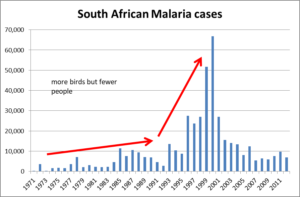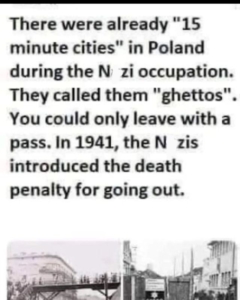Killing People to save the Planet
Much of the world is dealing with spiraling energy costs. The problem is very acute in Germany where the government decided to save the planet by sacrificing their citizens. I think Germans will be pissed when they realize they are not saving anything. Their ridiculous policies are based on junk science provided by the environmental lobby.
With growing awareness that the energy crisis could become a lethal threat to the Greens’ top priority of climate change, Robert Habeck’s ministry commissioned three different think tanks to calculate the potential costs of climate change for Germany.
The results were unsurprisingly catastrophic, showing that the issue would cost almost a trillion euros until 2050. The assumptions of the study, though, were entirely unrealistic, and based on a global warming scenario that was recently banned from use in US agencies due to its lack of validity.
Based on this flawed study, however, Germany decided to push even harder for the energy transition, motivated by yet another set of faulty assumptions.
What makes the situation even more frustrating is that these studies are easy to debunk if one only takes the time to read them, rather than relying on a press release from the ministry. Yet almost no media outlet was doing that — most probably because the results were not just aligned with the Green agenda, but also with the personal views of most journalists.
The environmental movement is dishonest and dangerous. Their ridiculously unscientific doomsday scenarios cause politicians to make remarkably stupid decisions. Politicians are naturally predisposed to stupidity and really don’t need the encouragement. The climate cult convinced pot addled California politicians that snow was no longer a possibility. As a result
Like most blue enclaves, California didn’t plan for real-world climate variations. Now people are dead.
A dozen deaths have been reported in mountain towns, many of them elderly people cut off by the snow, under a political system that had decided to pretend that snow was a relic of the distant past.
Snow was supposed to disappear. Climate mitigation strategies often acted like it didn’t exist or as if the defining climate situation would involve less and less of it, not more and more.
A dozen deaths are tragic but it is a drop in the bucket compared to what will happen from the attack on farming. The first battles in the war on farming are being fought in the Netherlands. On the weekend I found this glowing article celebrating the architect of this lunacy; Johen Vollenbroek. Like other narcissists in the environmental movement Vollenbroek doesn’t understand why people don’t recognize that he is a prophet sent by god to save the planet.
Back in his kitchen in Nijmegen, Vollenbroek is baffled by farmers who don’t see the world in his terms. “We do not want you to get out of business, but you have to change,” he tells farmers when he meets them. “We have neglected the climate and we have neglected our natural reserves all over the world.”
He doesn’t want to eliminate farming he just wants to change farming. God has apparently given him farming knowledge that is far superior to the thousands of people actually making a living off of farming. We should be way more thankful for his divine presence.
When I first learned of these farm confiscation policies I did a little research about nitrogen fertilizer and nitrogen oxides. I could not find anything that showed nitrogen fertilizer was much of a problem so I was very interested in what Vollenbroek’s justification was. Apparently he is concerned about plants he does not like and dead fish. That is why we must ban another essential building block of life.
While nitrogen is an essential building block of life, in large quantities it becomes a toxic killer. Some fast-growing plants thrive on it and turn into monstrous ecosystem overlords. Smaller, rarer species, like herbs, lichens and mosses, are driven out. Across the Netherlands, but especially in sensitive grasslands and marshes, the soil is turning increasingly acidic. In waterways, nitrogen spurs algal growth, sucking oxygen from the water. Fish suffocate.
Invasive species and dead fish can be a problem but how big is the problem? How many fish and plants will we save by restricting fertilizer and confiscating farms? The article does not say, and that in a nut shell is the primary problem with the modern environmental movement. The Environmental movement will never recognize that their actions have consequences beyond saving fish. I cannot tell you how many fish will be saved by restricting fertilizer but I can tell you hundreds of millions of people will starve.
That may seem like hyperbole but it is not; we have been to this movie before. In 1962 a book called the silent spring was published. The book detailed how some pesticides were damaging the environment. DDT was singled out because it was causing reproductive problems (thin egg shells) in some types of raptors. As a result DDT bans started and by 1972 it was banned worldwide. No one stopped to consider what would happen from banning DDT. The assumption was that countries were spending millions of dollars per year on pesticide programs for no reason other than killing birds.
Of course that was not true. DDT was used in Africa to control malaria mosquitos. By using DDT Africa had nearly eliminated malaria; banning DDT caused malaria cases to skyrocket for 30 years. Africa has only recently gotten malaria back under control. The plot below is from South Africa.

Millions of Africans, mostly children, died to save birds. Couldn’t we have allowed high malaria areas to continue to use DDT until a better alternative was discovered? Not according to the left. The left never considers the cost of any of their policies just the benefits. Africans know the price is often paid in human misery and death.
They do not care if their policies kill people because their core philosophy is people bad, everything else good. Their core belief is that humans need to be eradicated. We should never let these homicidal lunatics set public policy.

